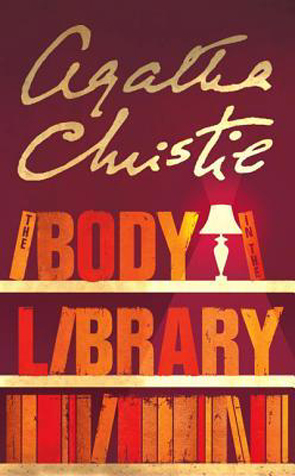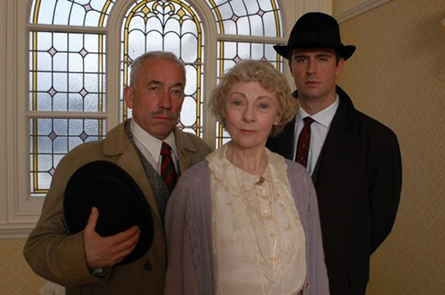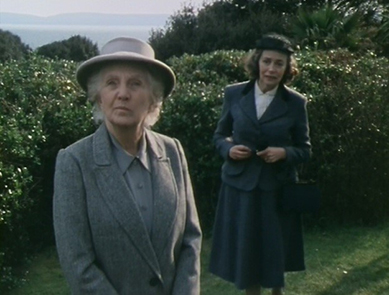
- Category:Crime Fiction
- Date Read:6 January 2023
- Published:1942
- Pages272



Miss Marple Series #2
- Category:Crime Fiction
- Date Read:6 January 2023
- Published:1942
- Pages272

So says Miss Marple, opening the last chapter of The Body in the Library as she begins to explain how she worked out who is the murderer in this very clever little mystery. This is the second Miss Marple mystery, and so we are back with an elderly but still sprightly version of Miss Marple, still fairly active and who can be called upon by a friend who finds the body of dead woman in her library.
The book opens with Mrs Bantry being woken by a hysterical maid who reports that there is a dead woman in the library, before rushing out of their room. She momentarily thinks she must have dreamt this odd occurrence, but once she realises that she actually is awake, she forces her husband, Colonel Bantry, to venture downstairs to deal with it. He is reluctant to stir but is forced out of bed and down the stairs. He is shocked to find there really is the body of a beautiful, glamourous blonde, lying on a rug on their library floor. While Colonel Bantry’s first response is the call the police, Mrs Bantry calls Miss Marple, so she can view the body before anyone official arrives to stop the fun. This is not one of those mysteries where you need to wait half the book before the murder: we’re into it right from the first chapter.
I thought the characters in this one felt a little generic: the bluff ex-military types; the disabled millionaire determined to not let his physical incapacity stop him from whatever he wants to do; the loyal daughter-in-law; the slightly common but very competent professional dancer (useful but not quite one of us); and the dissolute young men leading scandalously bohemian lifestyles. All the characters feel exactly like the characters you would expect to find at a seaside hotel just before World War II. That sounds like a criticism, but Christie makes good use of all of them in this book to create a picture of the social structures in an English village and in the nearby seaside resort.
The most important part of this is the demonstration of how tenuous someone’s social position can be, shown by the gradual shunning of Colonel Bantry over the course of the book. As the body is found at the Bantry’s house, Gossington Hall, the Colonel comes under immediate suspicion for disposing of an inconvenient lady friend. When no connection is found between him and the victim, the investigation moves on to the hotel where Ruby (the victim) worked as a professional dancer. But the villagers still view the Colonel with suspicion and subtly begin to exclude him from local affairs. He has almost become a social pariah by the end, but is saved by Miss Marple exposing the murderer and removing the pall of suspicion from him.
Class judgements also come down quite harshly on poor Ruby. A few of the more respectable characters seem to think she gets no more than she deserves, with her charming of the disabled millionaire who announces his intention of adopting the girl, giving her some education and polish and a life of wealth and privilege.
This seems to be the obvious motive for her murder, but all of the suspects have air-tight alibis that the police just cannot break. The case gets further complicated by the discovery of the body of another young girl, this time a local school girl. She also has a connection to the hotel and the cases seem like they should be connected in some way, but the police can’t find any links between the two girls.
Of course this is where Miss Marple comes in, with her detailed knowledge of human behaviours. As one of the senior police officers says after spotting her in the hotel - “Downstairs in the lounge, by the third pillar from the left, there sits an old lady with a sweet, placid spinsterish face, and a mind that has plumbed the depths of human iniquity and taken it as all in the day’s work.”
Miss Marple gets to be very clever in her deductions in this book, believing nothing that anyone says to her unless she can prove it for herself. She notices little details, little inconsistencies that the police miss, finds parallels for everyone with various people from the village and slowly manoeuvres people into giving themselves away.
One thing that strikes you as you read this book is that there are lots of police on the investigations. There are various local underlings at first, the local inspector from St Mary Mead, the Chief Constable of the district, the Superintendent from the seaside town, and finally, the retired Commissioner of Metropolitan Police, poking his nose in it as well. Despite all of them being on the job, of course it’s Miss Marple who is the only one who can put it all together and solve the murders.
Overall, this was a fun, light read that showcased Miss Marple’s talents quite nicely.



No one has commented yet. Be the first!